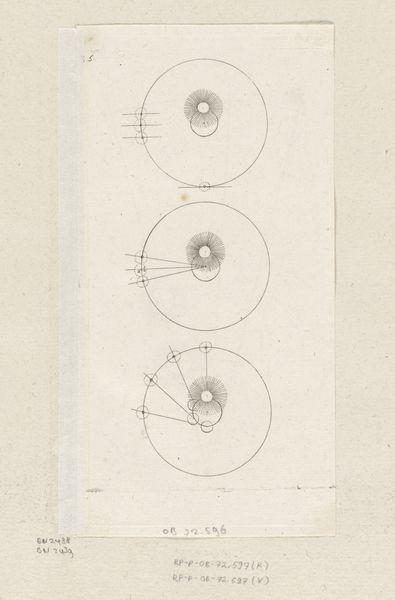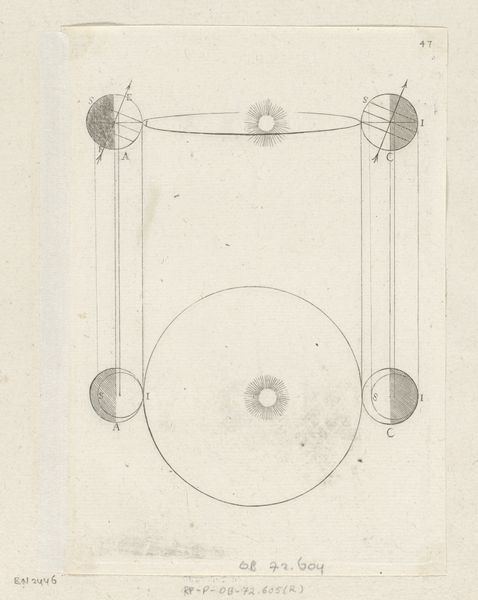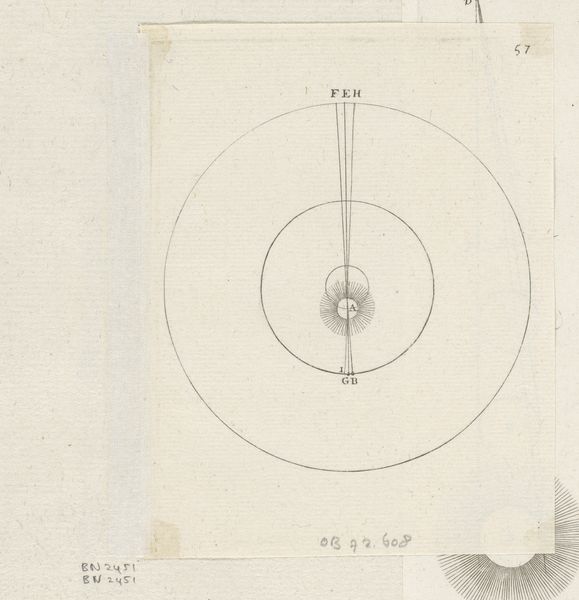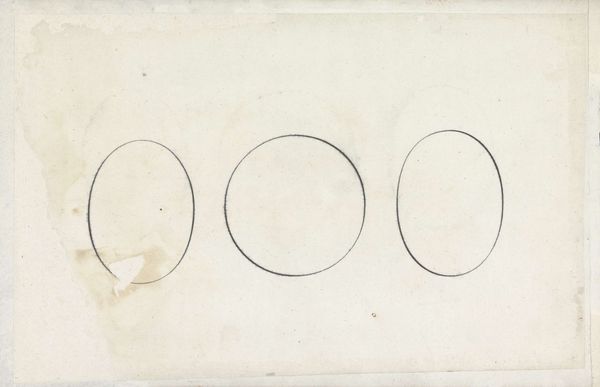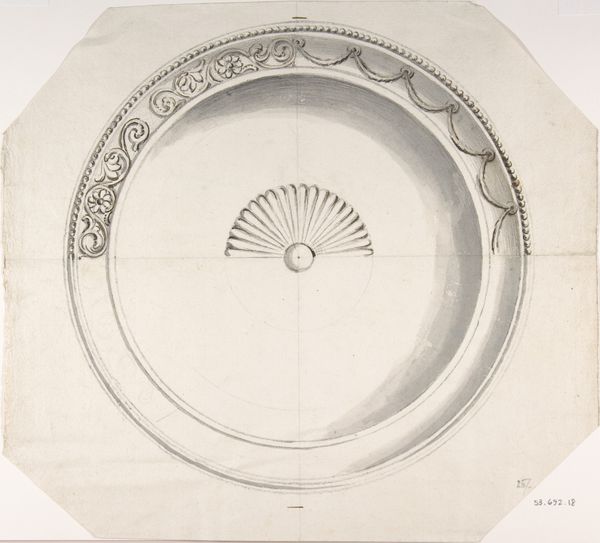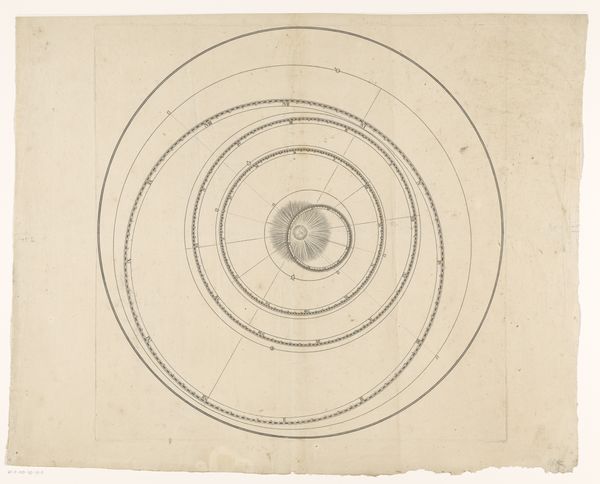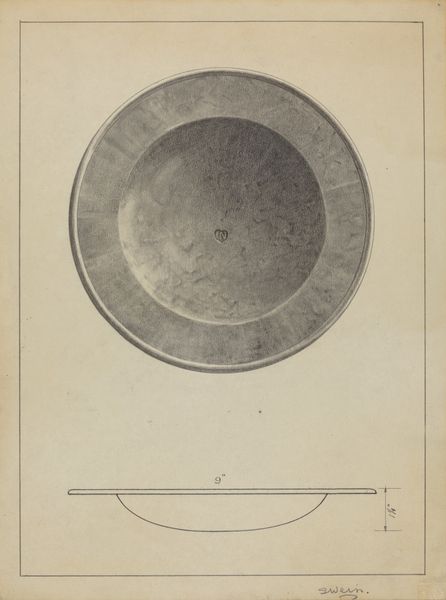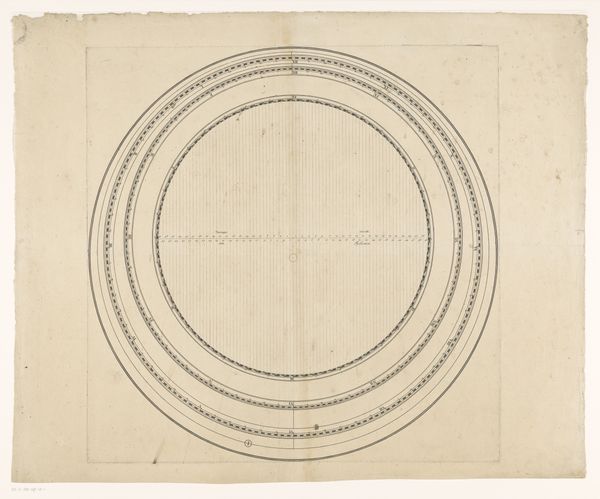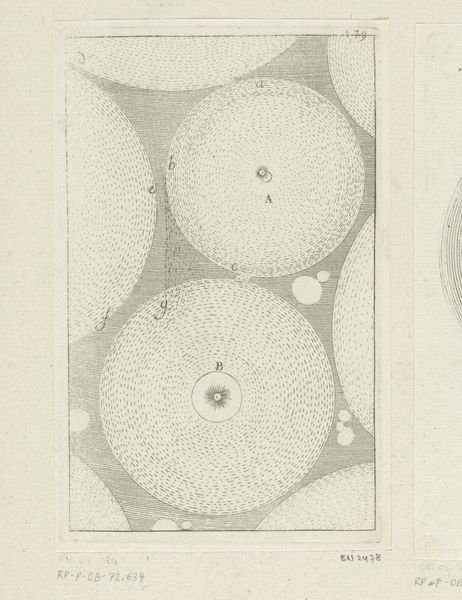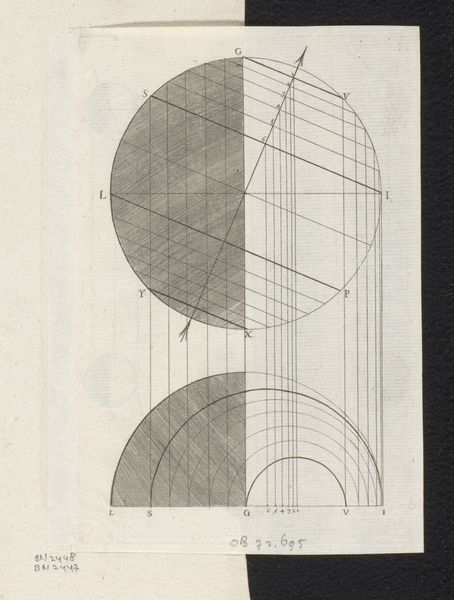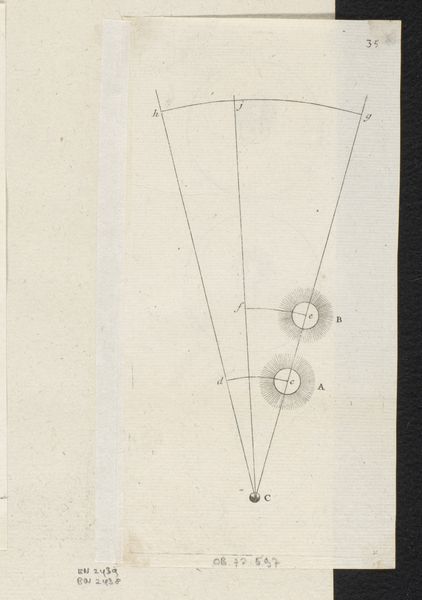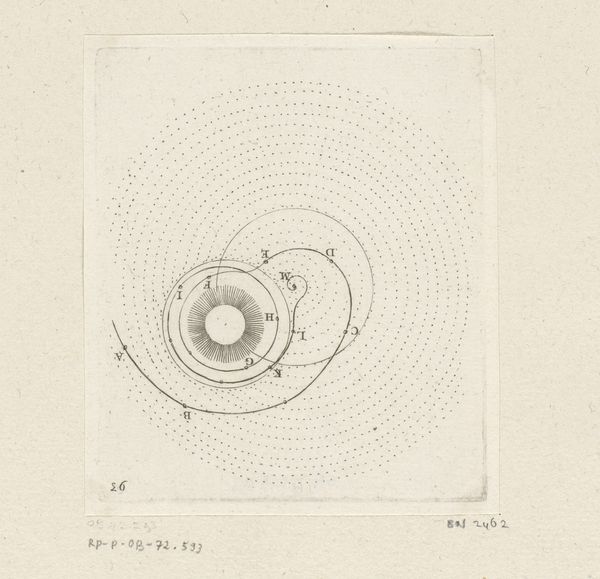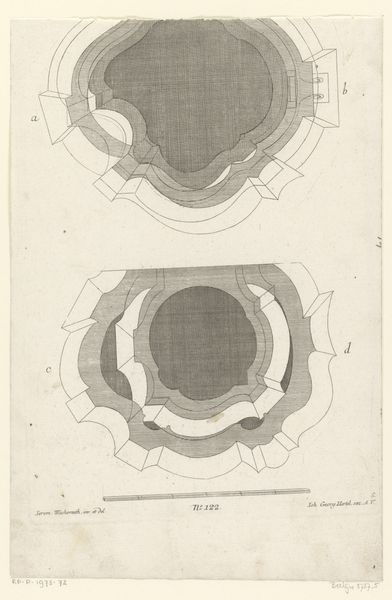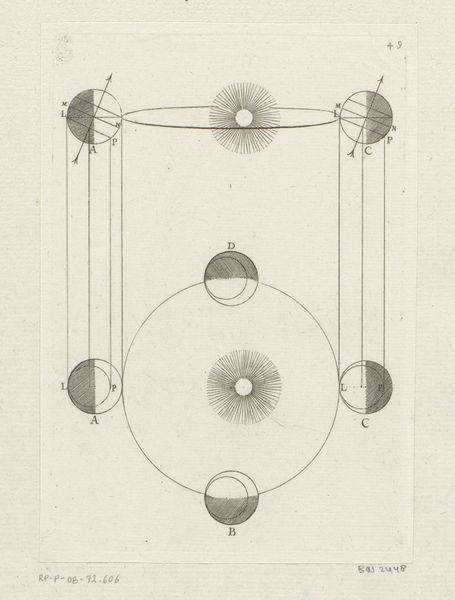
drawing, print, pencil, graphite
#
pencil drawn
#
drawing
# print
#
pencil sketch
#
sketched
#
geometric
#
pencil
#
graphite
#
pencil work
#
academic-art
Dimensions: height 338 mm, width 565 mm
Copyright: Rijks Museum: Open Domain
Editor: This is Daniël Veelwaard's "Zonsverduistering van 1820," or "Solar Eclipse of 1820," a pencil and graphite print currently housed in the Rijksmuseum. It feels like an attempt to capture something both scientific and awe-inspiring. How do you interpret this work, especially the rendering of such a celestial event? Curator: Immediately, I'm struck by how Veelwaard presents a scientific diagram, yet the corona of the eclipse, rendered in delicate pencil lines, evokes a sense of wonder and even anxiety. Eclipses historically have been seen as omens, disrupting the natural order. Editor: That’s fascinating. The combination of scientific representation with, what you call, an aura of anxiety. Was there a tension between science and superstition at this time? Curator: Absolutely. The early 19th century was a period where Enlightenment rationality was growing, but old beliefs hadn’t entirely faded. Consider that the sun, often a symbol of divinity or royal power, is here partially obscured. This evokes an emotional, psychological impact, potentially unsettling viewers even as it informs them. The east/west direction labels imply an ambition for humanity to comprehend these cosmological forces. Editor: So, beyond the literal depiction of the eclipse, you see symbolic weight. That really changes how I see it; less a simple scientific diagram and more a reflection of societal shifts and enduring beliefs. Curator: Precisely. By visually recording an eclipse, Veelwaard anchors a transient, historically fraught event into something documentable, shareable, but it also inevitably triggers a sense of shared cultural memory related to eclipses throughout human history. Editor: I’ll definitely remember that connection between science and symbolism next time I see it. Thanks for this new way of reading historical art.
Comments
No comments
Be the first to comment and join the conversation on the ultimate creative platform.
